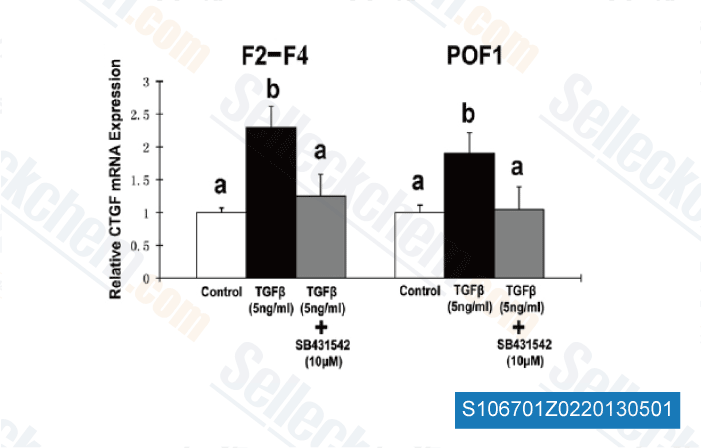On this study, the reason why the PI3K/Akt expression level was markedly decreased by apigenin therapy is not really clear. An earlier review on head and neck carcinomas suggests that apigenin targets EGFR, that is upstream of PI3K/Akt. Inside a future study, the correlation among apigenin and EGFR expres sion ranges in bladder cancer must be examined. The Bcl 2 selleck chemicals protein relatives includes the two pro apoptotic and anti apoptotic proteins that regulate mitochondrial outer membrane integrity, cyto chrome c release, and caspase activation resulting in apop tosis. Former studies showed that using the activation of your PI3K/Akt pathway the expression of Bcl two family greater, and Akt inhibits apoptosis through mitochondrial pathways. Shifting the stability of Bcl 2 relatives members toward pro apoptotic effects will activate caspase three and executes the apoptotic program. Therefore we investigated the result of apigenin on Bcl 2 family members.
The present study signifies that apigenin treatment method upregulates pro apoptotic proteins Bax and Negative when downregulates anti apoptotic proteins Bcl 2 and Bcl xl protein. Adjust from the Bcl two family induces the release of cytochrome c from mitochondria into cytosol and cytosolic cytochrome c then binds to Apaf 1 and leads to your activation of caspase three and PARP. In our study, we also additional reading confirmed that apigenin activated caspase 3 and leaded to PARP cleavage. As a result our research proved apigenin remedy induces apoptosis in T24 cells through PI3K/Akt pathway and Bcl two household. Cell cycle arrest and apoptosis represent two effective mechanisms concerned while in the induction of cell death. It can be well established that reduction of crucial cell cycle checkpoints is often a hallmark of cancer cells, leading to abnormal proliferation and facilitating oncogenic transformation.
Observations have shown that apigenin is often a potent inhibitor of cell cycle progression in the amount of distinct cell lines. We also measured the effect of apigenin on cell cycle of T24 cells and discovered that apigenin leads to a G2/M phase arrest. The comparable results have been observed in human colon and breast carcinomas. In the current study, G2/M phase greater  from 14. 45% up to 37. 94%, with nearly 2. 6 folds rising, in a dose dependent way, which indicated the apigenin induced cell development inhibition was involved with cell cycle arrest. Though Lepley DM, et al. have proved a G1 arrest by apigenin in human diploid fibroblast, we observed G2/M arrest in apigenin treated T24 cells. The main difference among these outcomes could be attributed on the cell varieties tested. Previous scientific studies have shown that PI3K/Akt pathway could regulate expression of G2/M relevant proteins to influence the progression of G2 to mitosis phase. Expression of active form of Akt led to a rise within the protein and mRNA level of Cdk1, whereas Akt dominant negative mutation inhibited cell proliferation by inducing G2/M arrest.
from 14. 45% up to 37. 94%, with nearly 2. 6 folds rising, in a dose dependent way, which indicated the apigenin induced cell development inhibition was involved with cell cycle arrest. Though Lepley DM, et al. have proved a G1 arrest by apigenin in human diploid fibroblast, we observed G2/M arrest in apigenin treated T24 cells. The main difference among these outcomes could be attributed on the cell varieties tested. Previous scientific studies have shown that PI3K/Akt pathway could regulate expression of G2/M relevant proteins to influence the progression of G2 to mitosis phase. Expression of active form of Akt led to a rise within the protein and mRNA level of Cdk1, whereas Akt dominant negative mutation inhibited cell proliferation by inducing G2/M arrest.
No related posts.
